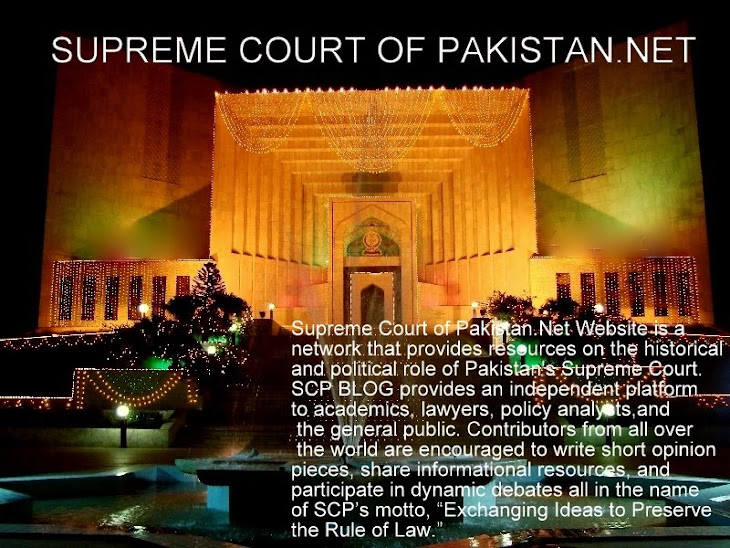Saturday, January 23, 2010
Pakistan's Senate Passes Landmark Anti-Harassment Bill Aimed at Women
Women and those who care for women in Pakistan have at long last something to celebrate. The Criminal Law Amendment Bill (which is related to sexual harassment) was adopted by the Senate with the support of all major parties, but with members of the religious parties staging a walkout or absenting themselves.
The bill which had been passed by the National Assembly in November will become law when it is signed by the president. It enhances the punishment for acts previously described in the PPC and the CrPC as an “insult to the modesty of women” and gives a clearer definition of harassment to make it justiciable before a court of law. But as is the case with all laws, especially those envisaging change, they have to be translated into action. That calls for strict enforcement on the one hand, and a change in mindset on the other. One hopes that the government and social activists work towards that end to eliminate the intimidation that women face in public places. This is essential to facilitating women’s mobility outside their homes to enable them to obtain education, healthcare and employment. Complete Story
Wednesday, January 20, 2010
SC Judgement on National Reconciliation Ordinance
Yesterday (Jan 19, 2009) Pakistan Supreme Court published its detailed judgment on National Reconciliation Ordinance (NRO). Entire text below:
IFTIKHAR MUHAMMAD CHAUDHRY, CJ. – Constitution Petition Nos. 76 to 80 of 2007 and 59 of 2009 have been filed,
IFTIKHAR MUHAMMAD CHAUDHRY, CJ. – Constitution Petition Nos. 76 to 80 of 2007 and 59 of 2009 have been filed,
challenging the constitutionality of the National Reconciliation Ordinance, 2007 [hereinafter referred to as “the NRO, 2007”],
whereas Civil Appeal No. 1094 of 2009 (by leave of the Court), has been filed against the order dated 15th January 2009, passed by High Court of Sindh in Constitution Petition No. 355 of 2008, whereby the benefit of the NRO, 2007 has been declined to the appellant. Similarly, in Human Right cases, the applicants have prayed that the benefit of the NRO, 2007 may also be extended to them.
2. Brief facts, leading to filing of the listed petitions are that on 5th October 2007, the President of Pakistan [hereinafter referred to as “President”], while exercising his power under Article 89 of the Constitution of the Islamic Republic of Pakistan, 1973 [herein after referred to as “the Constitution”], promulgated the NRO, 2007 vide Ordinance No.LX of 2007.
3. The above Ordinance came under challenge, immediately after its promulgation, before this Court, by invoking jurisdiction under Article 184(3) of the Constitution, in the listed Constitution Petitions, when, on 12th October 2007, after hearing the learned counsel for the petitioners at a considerable length and examining the case law, the Court passed an order, which is reproduced hereinbelow:- Complete Text
2. Brief facts, leading to filing of the listed petitions are that on 5th October 2007, the President of Pakistan [hereinafter referred to as “President”], while exercising his power under Article 89 of the Constitution of the Islamic Republic of Pakistan, 1973 [herein after referred to as “the Constitution”], promulgated the NRO, 2007 vide Ordinance No.LX of 2007.
3. The above Ordinance came under challenge, immediately after its promulgation, before this Court, by invoking jurisdiction under Article 184(3) of the Constitution, in the listed Constitution Petitions, when, on 12th October 2007, after hearing the learned counsel for the petitioners at a considerable length and examining the case law, the Court passed an order, which is reproduced hereinbelow:- Complete Text
Subscribe to:
Comments (Atom)

